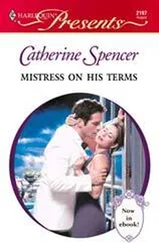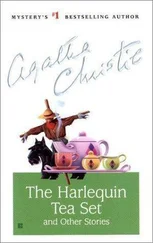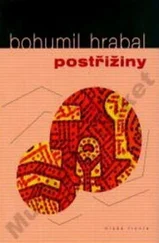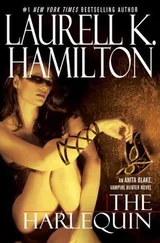At that moment it struck me that the façade of the castle resembled the faces of each and every elderly pensioner, with that crumbling plaster and the hands of the clock stuck at twenty-five past seven, those hands that looked so much like arms resting on knees, I noticed that in places the plaster was so ravaged by time that the original masonry was exposed, great blocks of marl and sandstone cemented together with coarse mortar. Exactly like the faces of the older pensioners! Because in that castle there are also younger pensioners without a single wrinkle. But even the younger ones always seem to be looking elsewhere, they stand around as if they’re trying with all their might to remember something, but can’t, not for the life of them. And they’re probably not trying to remember anything at all, they look amazed, as if at any moment they’ll be able to remember something pleasant, something that will cure them, something that will do them good. Their faces give the impression of nobility and that they were once highly educated, but actually they’re still learning, only now is their education nearing completion, they’re perpetually on the verge of a realization that everyone else in the world is after too. But perhaps they only appear that way to me. For these people it’s a great achievement if they can even find their way back to the castle, their rooms, their beds. Then the glazed front door flew open, the reflection of the glass panes made a semicircle on the ground below and dazzled me, I lifted my head and on the second floor a bearded man stepped out onto the balcony, he leaned his hands on the railing and turned his profile to the right and then to the left, the old man looked like Count Špork himself. His raised chin shone with a trimmed white beard as he pretended to be observing the weather, the landscape. He remained in this exalted pose, unmoving, pensive, as if he were relishing this moment, in which he wanted to make clear that he had ended up in the retirement home by mistake. Then, just beside the row of columns that led to the castle vestibule, a face began to move, and I saw, to my dismay, that the face belonged to an old woman in a wheelchair, her hands were gripped firmly around the armrests, she tensed her arms and shoulders so tightly that her back formed a straight line against the back of the chair, so that I kept imagining she was a sphinx. And opposite her, next to another column, sat an almost identical woman, equally solemn, equally sphinxlike. Her wheelchair also had its back to the column, and there they sat, two feeble old ladies in their little black wheelchairs in the sun, both of them had their skirts rolled up so high you could see a white enamel chamber pot gleaming under the sliding seats of their chairs. And as a breeze blew from the north, softly singing and rustling the leaves on the trees, I heard music in the distance, string players, the kind of music they always played as an accompaniment to Chaplin’s
Limelight , or that film about the life of Toulouse-Lautrec, music that brought a wistful smile to your lips, a composition for strings that moved me as deeply as the elaborate castle gate. But although I myself was touched by the sound of those strings, I saw that the pensioners were just wandering around and paying no attention to the music, they sat on benches drawing silly pictures in the sand with their canes, or sucking quietly on lozenges and peppermints. On the right side of the courtyard was a separate building, also beige colored, and all along the front wall of that building was a large open corridor, a gallery, not nearly as pompous as the balconies on the front of the main building, and along this gallery were ten brown doors leading to various rooms, mounted on each of the ten doors was a small brown box. A few pensioners, all men, walked out onto the gallery, leaned over the railing and looked down, they looked at me, stiffly, rigidly, but I could tell they didn’t see me, their gaze was elsewhere, they were looking back, to the old times, when they were young, or perhaps they were still grieving bitterly and angrily about some incident they could do nothing more about, something beyond their control, even though the incident had only now reached maturity, while the reasons for whatever had happened were long since past … And I saw that same music drifting down from the long gallery, swirling like smoke around all those figures, I could even see the music pouring from the little brown boxes on the doors, which were open here and there. I shook myself out of my reverie and walked back toward the vestibule, where the two old ladies in their wheelchairs with their fingers clutching the leather armrests still looked like sphinxes, only now they were surrounded by the sounds of a string orchestra, and I saw that the music was coming from the rediffusion boxes, that this music was winding around the two old women like a wild rosebush around a statue, I looked up and saw that between every door on the balcony and the gallery, mounted on a bracket, was the same little box, like a cage for a blind bird, and I saw that from each little cage music was pouring, music for strings, the poignant sounds of the strings were intertwined, they played in unison, and then suddenly one of the players, with great urgency, would play a solo, the theme … yes! It was “Harlequin’s Millions,” those same millions that accompanied silent movies in the old days, an amorous scene, a declaration of love, kisses that made the viewers, who were moved to tears by the string players, reach for their handkerchiefs … Now I’m standing here in the courtyard of the retirement home, once the castle of Count Špork, Francin has rented a room here for the two of us, Francin’s older brother Uncle Pepin has been at the home for three months, in one of the wards of this poorhouse, as they called it in the old days. In the ward for bedridden patients. Whenever I visited Uncle here, then too I’d stroll through the vestibule, I’d walk up the slowly ascending corridor and peek into the side corridors, where old women came to life and pushed aside their curtains to peer into the courtyard … Then too I peeked into the corridor of the ward where the old women lay and where the sharp smell of babies’ diapers hung in the air, then too I peeked into the dining hall, years ago Count Špork held banquets here for hundreds of noble guests, then too I ended my walk in the ward for bedridden patients, where Uncle Pepin lay in his bed in the shadows and where nine other bedridden pensioners looked up at me, and here too I could hear “Harlequin’s Millions,” but only after I had sat down and looked at Uncle Pepin, who lay staring at the ceiling with unblinking eyes, not speaking, not agreeing, not disagreeing, just lying there, only then did I hear “Harlequin’s Millions” in the distance and I had the strong feeling that I was hallucinating, as a kind of defense against everything I had seen here. So strong was my revulsion, so heavy my suffering after all I had seen on my first visit to Uncle Pepin in this former castle! Yet something had happened to me, something that completely shocked me, I decided we should sell everything and Francin agreed, and now here I am standing in the courtyard, Francin has rented a room for us, it costs a whole month’s pension and for a small additional fee we can live here like members of Count Špork’s own family, in one small room, that’s true, but for that extra fee we can have our breakfast, lunch and dinner in the same room where the Count and his family are said to have eaten their afternoon and evening meals, in the dining hall, every day I’ll stroll past the sandstone statues in the park and someday I’ll be able to say that I know what each of those statues represents, I’ll be able to look up at the ceilings, painted with scenes from Greek history, I’ll be able to touch the white Greek vases standing in the niches along the stairs, while Francin checks his watch, again and again, afraid he might miss the world news on all the radio stations where Czech is spoken. I had been in the castle at least ten times or more, but then I was a guest, scared of everything and easily panicked. Today I stood here as a person who is going to be living here for a long time, until something happens to me, suddenly someone will come to me, whisper sweet nothings and make me all kinds of promises and then set me free, in a landscape that knows no limits, no bounds. I’d been in the castle ten times or more, but today the things I noticed, the sounds I heard and the interactions I saw, were sharper, clearer, and in that sense different from all the times before.
Читать дальше












